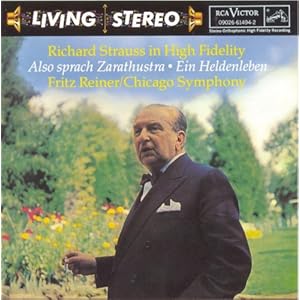Emil... you would get more than just a little flack on any classical music forum for proclaiming Karajan the "Greatest" anything. Personally... I would agree with you... to a given extent. he was one of the greatest conductors of the Modern era... and one of the conductors by whom I have the most recordings. His Beethoven cycle (1963) is unsurpassed. He is among the finest for the complete symphonies of Schumann, Mendelssohn, Brahms, Bruckner, and Tchaikovsky... and again a top-choice for Strauss. He has a god dozen or more opera recordings that are absolute "must-have" material to the classical music fan: Humperdinck's Hansel und Gretel, Mozart's Le Nozze di Figaro and Die Zauberflote, Wagner's Parsifal, Tristan und Isolde, Die Meistersinger... and arguably the Ring... (although there he really can't beat Solti, Knappertsbusch, Krauss, and Keilberth), Richard Strauss' Alpine Symphony and Der Rosenkavalier, Johann Strauss' Fledermaus, and a slew more.
Having said that... there are a wealth of brilliant performances by other conductors who were every bit as good as Karajan... including Georg Solti, Georg Szell, Bruno Walter, Joseph Krips, Erich and Carlos Kleiber, Leonard Bernstein. John Barbirolli, Otto Klemperer, Hans Knappertsbusch, and of course Wilhelm Furtwangler. Karajan, of course, had the advantage of being the conductor/director "for life" of the Berlin Philharmonic Orchestra... arguably the greatest orchestra in existence... and certainly one of the two or three most influential institutions in the realm of classical music. And then, as noted, Karajan was involved with Deutsche Grammophon and their technological innovations in recording... including digital technology. He was also a favorite of Walter Legge for operatic recordings on EMI... which was the unmatched lable for opera. The only conductors who might have rivaled Karajan's influence would be Leonard Bernstein, Arturo Toscanini, Leopold Stokowski, and Wilhelm Furtwangler... Karajan's predecessor with the Berlin Philharmonic.
Today there are some marvelous conductors involved with the great orchestras around the world... but the most innovative seem to be those involved in exploring music outside of the old Classical/Romantic/early Modernist realm. The HIP (Historically Informed Performance) movement has shaken up the industry and many of the finest active conductors (John Eliot Gardiner, Sir Neville Marriner, Jordi Savall, René Jacobs, William Christies, Harry Christophers, Marc Minkowski, Trevor Pinnock, Masaaki Suzuki, Ton Koopman, Rinaldo Alessandrini and Fabio Biondi) and performers (Rachel Podger, John Holloway, Gidon Kremer, Andrew Manze, Elizabeth Wallfisch, Andreas Staier, Max Emanuel Cencic, Andreas Scholl, Magdalena Kozena, Philippe Jaroussky, the Sixteen, the Hilliard Ensemble, Sequentia, etc...) are greatly involved with Baroque and earlier music... as well as with stripping away the Romantic "perfume" from classical works by Mozart... and even Brahms. René Jacobs' Mozart opera recordings have become the "go-to" recordings of today.




 Reply With Quote
Reply With Quote






